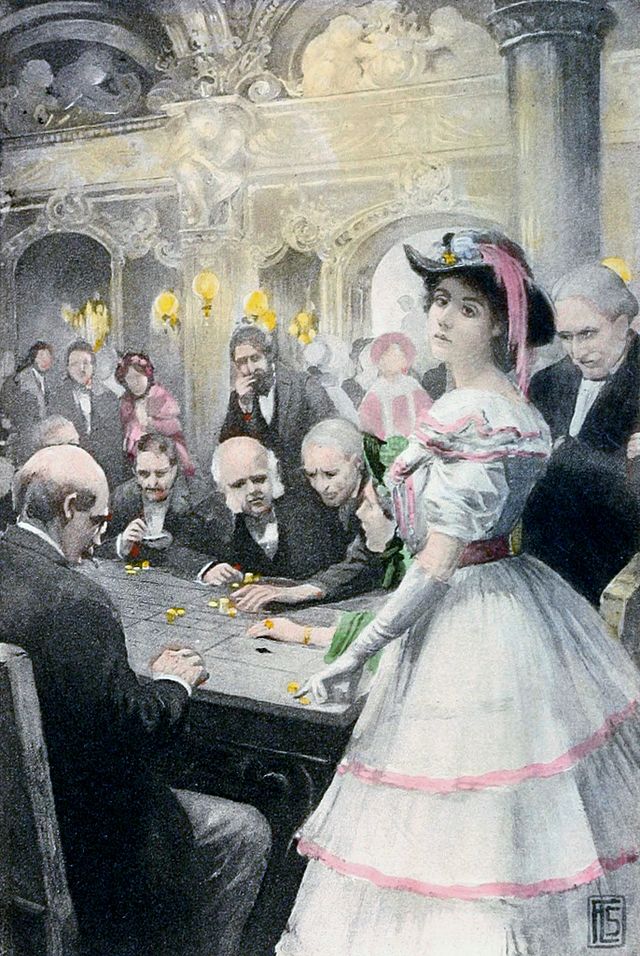When I first read it, I didn't know that Deronda was the last completed novel by George Eliot who died in 1880, four years after the book's release. This isn't the first time I've began a writer's canon by starting at the end; my first Jane Austen read was Persuasion, who much like Daniel Deronda, was a title over looked for many years and shows the maturity of the author's style.
Not every literary finale has that distinction but it's funny how George Eliot and Jane Austen were both able to engage my interest with their last words, so to speak:
The plot of Deronda is divided between the title character and a young woman he first sees at a gambling table, Gwendolen Harleth. As Gwendolen discovers the true price to be paid by marrying for money, Daniel's encounter with a suicidal singer leads him to the truth about his parentage and his Jewish ancestry.
That part of the book fascinated me, as the literature of the Victorian era rarely, if at all, talked about religions other than Christianity in a positive manner. The vast majority of Jewish characters were blatant stereotypes, the prime example being Fagin from Oliver Twist(for which Charles Dickens apologized for later in life).
It turns out that Eliot's goal was to do for Jewish people in Britain what Harriet Beecher Stowe did with Uncle Tom's Cabin in America(the two of them corresponded at one point), challenge the prejudices of society to advocate for change. Granted, some felt that the book promoted Zionism while others felt that having two separate novels(one spotlighting Gwendolen, the other Deronda) would have been better.
Still, I give George Eliot credit for daring to take on the topic and offering at least a more well intentioned look at the lives of Jewish people during that time period, other than Fagin:
What will be a challenge for me is that I happen to be reading Middlemarch, Eliot's best known work, just as I'm about to start up with Deronda(and yes, I've read Silas Marner).
Middlemarch is part of my personal Morning Reads program, where I read at least two pages of a classic book(sometimes more but never less) each morning without fail. This plan has helped me clear up some space on my classic books TBR pile, particularly Les Miserables, and yet reading two works by the same writer at the same time is a little unnerving there.
How will my appreciation of Eliot's work be affected by this double dip? Well, I am more than half way into Middlemarch by now, at the part where the consequences of the death of Dorothea's husband are starting to sink in(that guy was such a pompous jerk!) and since Deronda is a book that I can read at any time of the day and night, this might not be as tough going as I feared:
Before summer is over, I will also be viewing the 2002 adaptation written by Andrew Davies that stars Hugh Dancy, Romola Garai, Jodhi May and Hugh Bonneville(yep, Downton Abbey fans, Lord Grantham is in the building!).
I did see this mini series when it originally aired(even got to ask Andrew Davies about it during my trip to Jane Austen country the year before) and it's a great production. This happens to be the third adaptation of Deronda, with the first being a silent film in 1921 and the other a mini series that debuted on British TV in 1970.
Since those earlier films are hard to find, I will be happy to dive into Davies' version yet again. How Daniel Deronda will now look to me after all this time(and along side Middlemarch) is still uncertain but no doubt, my mental appetite should be keenly whetted by such an engaging feast of words and emotions this summer season:


No comments:
Post a Comment